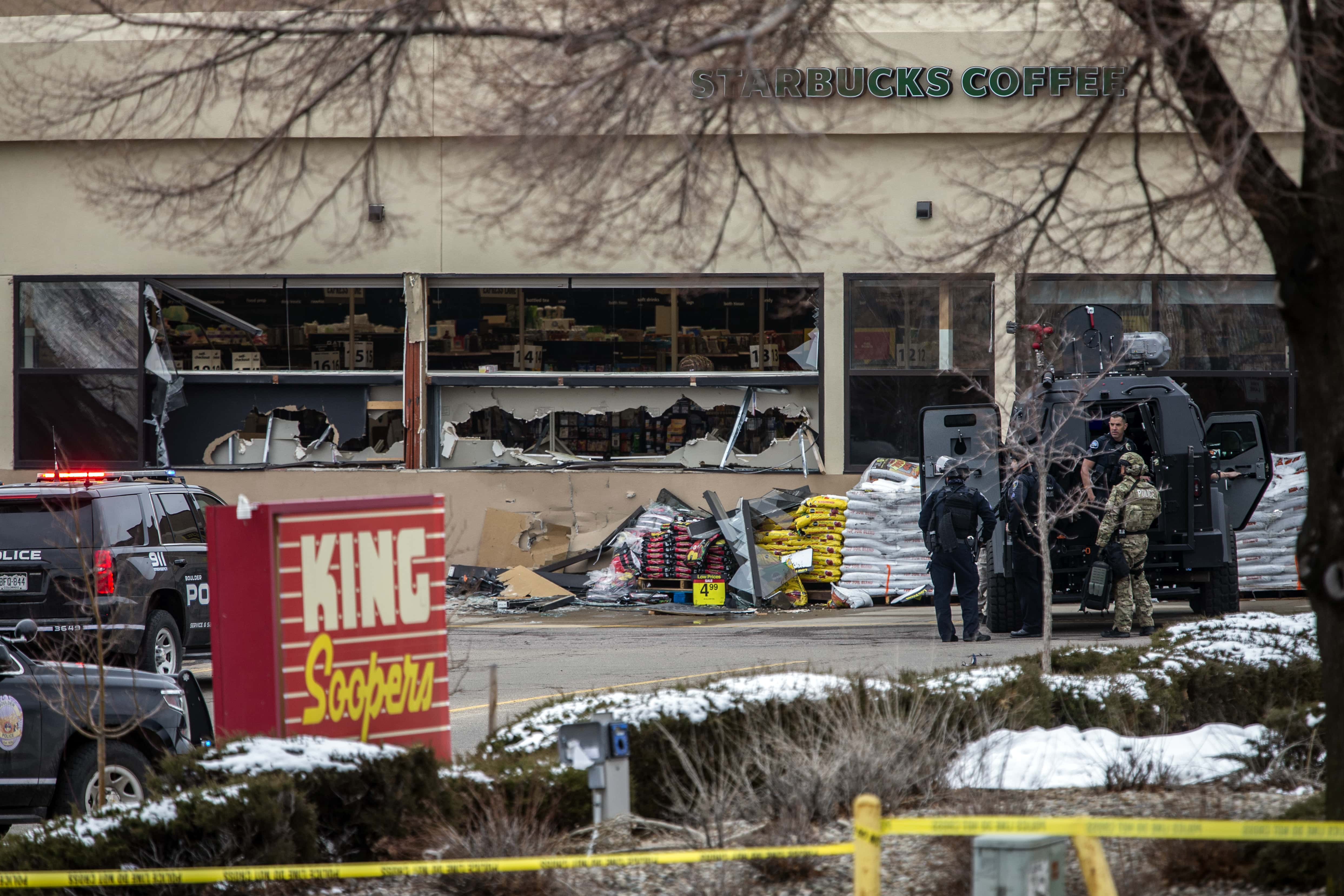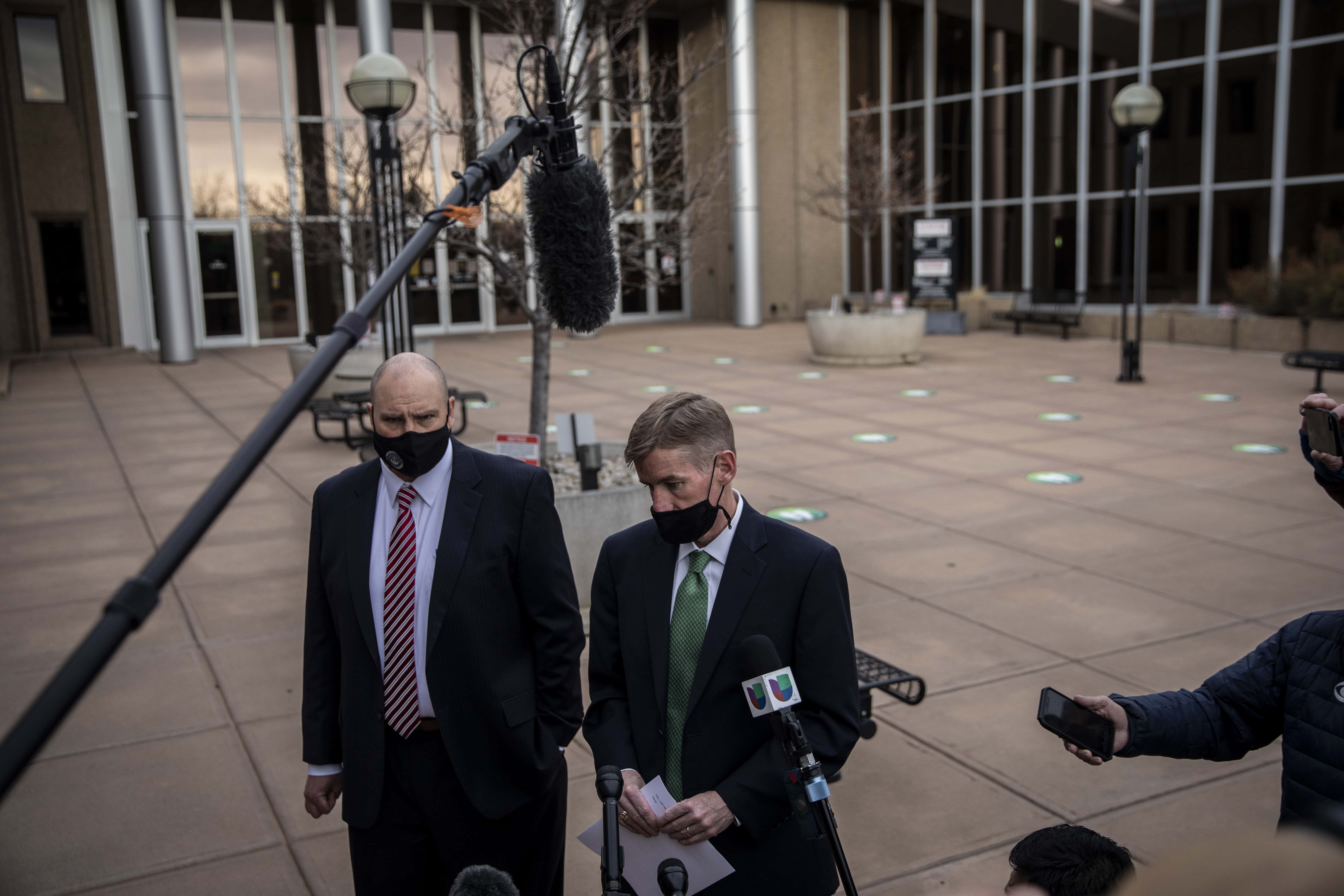Boulder shooting: Here's why Ahmad Al Aliwi Alissa won't stand trial at least for now

Ahmad Al Aliwi Alissa, the man accused of brutally shooing 10 people at the King Soopers supermarket in Boulder, Colorado won't face trial just yet, a judge ruled on December 3. Alissa walked into the supermarket and opened fire on unsuspecting shoppers and staff, before being taken into custody by police on March 22. He was later charged with 10 counts of first-degree murder.
The violent and brutal incident briefly reignited an Islamophobia debate in the US, after his social media posts revealed strong sentiments against Islamophobia. They went viral despite Facebook quickly taking down his account, but the damage was already done. The shooting put Alissa in the spotlight, revealing his violent past including an attack on a classmate when in high school.
RELATED ARTICLES
Boulder shooter Ahmad Alissa was 'laughing at us', cops and witnesses recall massacre that killed 10
Just a day after the shooting, police revealed Alissa's identity and confirmed the charges against him. But, months later, the victim's families appear to have had justice denied, as a judge ruled he won't stand trial just yet. The reason? His mental health.

Trial on hold over experts' conclusions
District Attorney Michael Dougherty said that four doctors examined Alissa over the past few months, and they all came to the same conclusion - he is not mentally competent to participate in court proceedings. Additionally, they concluded his mental health "deteriorated" while he was in jail awaiting trial. Dougherty asked Judge Ingrid Bakke to send Alissa to a mental health institution instead and hoped the treatment would help.
Dougherty didn't reveal to the public why Alissa was declared mentally incompetent, and since evaluation records cannot be made public, we may never know. Alissa’s attorney, Kathryn Herold, also weighed in, telling reporters her client had a "serious" mental illness but did not provide details. A court-ordered evaluation on October 1 does however provide some details. A filing in regards to that evaluation says Alissa was provisionally diagnosed with a condition that limits his ability to "meaningfully converse with others," and leads to a "potential overreliance on his attorneys."
On December 3, Bakke agreed with the findings and ordered Alissa to be treated at the Colorado Mental Health Institute at Pueblo. The ruling means the trial has come to a virtual standstill but crucially has not been scrapped. Alissa will be back in court on March 15, 2021, to see if any progress has been made. He could also return to court sooner if doctors at the institute declare him fit for trial. "I’m 100% confident that the day will come that he’s held fully responsible for what he did on March 22," Dougherty told reporters after the judge's ruling.

'He was pretty dang competent' on the day
The ruling hasn't won much support among the public. Robert Olds, whose niece Rikki Olds was one of the victims, told The New York Post, "He’s incompetent to stand trial, but on the day he did all of this he was pretty dang competent in his actions and everything else." Earlier, the prosecution also claimed he was mentally competent, noting he understood the legal process and was "fixated on the possibility of the death penalty," which doesn't exist in Colorado.
But those accusations were contested by the defense, and four evaluations later, it appears the prosecution has had no choice but to put its case on the backburner. Since he is ineligible for bond, Alissa will undergo treatment in custody, which is expected to start within a week of the order. Until the review on March 15, Bakke ordered the hospital to issue updates every 30 days.










